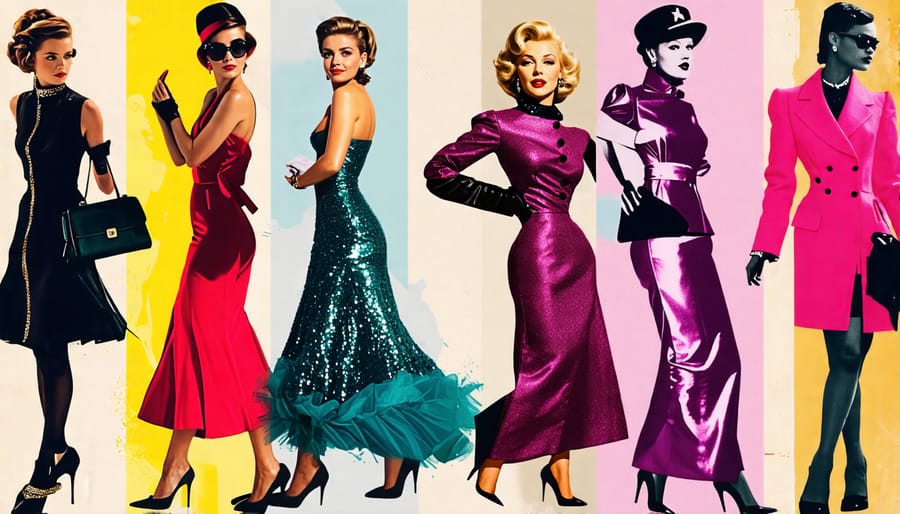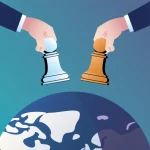Introduction
In 2025, the line between celebrity, politics, and technology has blurred more than ever before. Celebrities are no longer confined to acting, music, or sports—they are global influencers who shape public opinion, drive political debates, and even lead tech startups. Their reach extends across social media platforms, streaming services, podcasts, and digital communities, making them more powerful than traditional politicians or business leaders in some cases.
- Introduction
- The Evolving Role of Celebrities
- Celebrity Activism: Beyond Awareness
- Celebrities in Politics
- The Business of Celebrity: Entering the Tech Arena
- Celebrity Culture and the Digital Economy
- The Globalization of Celebrity Influence
- The Dark Side of Celebrity Influence
- Technology, AI, and Virtual Stardom
- FAQs
- Conclusion
This article explores how celebrities are shaping culture, politics, and technology in 2025, and what this means for society at large.
The Evolving Role of Celebrities
Celebrities in 2025 are not just entertainers—they are brands, entrepreneurs, and activists. Social media platforms such as TikTok 2.0, X (formerly Twitter), and immersive VR-based communities have given stars direct access to billions of fans.
Actors are launching tech companies, musicians are influencing global politics through activism, and athletes are building billion-dollar businesses that rival Silicon Valley startups. The celebrity of today is an all-encompassing cultural figure who blurs the boundaries of traditional industries.
Celebrity Activism: Beyond Awareness
Celebrity activism is not new, but in 2025 it has become more action-oriented. Stars no longer just endorse causes—they create movements. For instance, climate-conscious celebrities are investing in renewable energy startups, while others fund humanitarian relief operations in crisis regions.
A-listers are increasingly using their platforms to advocate for social justice, gender equality, and political reforms. With their global reach, they can influence governments and international organizations, raising questions about whether celebrities wield too much soft power in shaping policy.
Celebrities in Politics
2025 has witnessed a growing trend of celebrities running for political office. Inspired by figures from the past who successfully transitioned into politics, more stars are entering government roles worldwide.
Some bring fresh perspectives and mass appeal, while critics argue that celebrity politicians often lack the expertise required for governance. Nevertheless, their popularity ensures that they dominate media coverage, influencing both voters and political discourse.
The Business of Celebrity: Entering the Tech Arena
Celebrities are no longer just endorsing products—they are building companies. From launching NFT-based art collections to investing in AI-driven startups, celebrities are diversifying their influence in the tech space.
Musicians are selling virtual concert tickets through blockchain systems, actors are backing gaming platforms in the metaverse, and athletes are pioneering health tech startups that use AI for performance optimization.
This merging of celebrity culture and technology has created a powerful new market where fandom meets innovation.
Celebrity Culture and the Digital Economy
The digital economy thrives on attention, and celebrities are its main currency. Platforms like Instagram, YouTube, and VR worlds allow celebrities to monetize their personal lives as much as their work. Subscription-based models, such as fan-only platforms, let stars earn millions directly from their supporters.
Virtual influencers—AI-generated celebrity personas—have also entered the market, raising philosophical questions about what it means to be famous when one doesn’t even exist in the physical world.
The Globalization of Celebrity Influence
Unlike the 20th century when Hollywood dominated celebrity culture, in 2025 stardom is decentralized. South Korean K-pop stars, African film actors, Middle Eastern influencers, and European athletes are shaping global culture just as much as Hollywood elites.
Streaming platforms with global reach have allowed regional stars to gain international recognition. This has diversified cultural representation, breaking away from Western dominance and creating a more interconnected celebrity ecosystem.
The Dark Side of Celebrity Influence
With power comes responsibility—and controversy. Celebrities in 2025 are under constant scrutiny. Cancel culture remains a powerful force, and one misstep can lead to global backlash.
Additionally, the mental health toll of constant exposure is significant. Many stars are advocating for digital well-being while struggling privately with the pressures of fame. At the same time, misinformation campaigns sometimes exploit celebrity images, making it difficult for the public to separate fact from fiction.
Technology, AI, and Virtual Stardom
Perhaps the most striking change in 2025 is the rise of AI-driven celebrities. These digital personas are designed with perfect aesthetics, flawless performances, and endless availability. Some brands prefer working with virtual influencers because they are scandal-free and customizable.
However, this trend raises ethical concerns—are human celebrities being replaced? What does it mean when millions of fans emotionally connect with a figure that doesn’t exist?
FAQs
How has celebrity activism changed in 2025?
Celebrities are no longer just raising awareness but actively funding and leading initiatives in climate change, social justice, and humanitarian relief.
Are celebrities still dominating politics in 2025?
Yes, more celebrities are running for office, using their popularity to influence elections. While they bring visibility, concerns about their qualifications persist.
How do celebrities participate in technology today?
Celebrities are launching startups, investing in blockchain projects, and creating digital experiences in the metaverse, merging culture with innovation.
Are AI-generated celebrities popular?
Yes, virtual influencers are thriving, particularly in advertising and entertainment, though they raise ethical and philosophical questions.
Is the global celebrity ecosystem more diverse now?
Absolutely. Stars from Asia, Africa, and the Middle East enjoy international fame thanks to streaming platforms and global digital networks.
Conclusion
In 2025, celebrities are no longer just entertainers—they are political leaders, tech entrepreneurs, activists, and cultural architects. Their influence transcends industries and borders, shaping how people think, act, and even vote.
As technology continues to evolve, the future of celebrity culture may include more AI-driven personas, greater political involvement, and deeper integration with global movements. For readers of Dusktimes.com, the story of celebrity power in 2025 is not just about fame—it is about how individuals with influence shape the future of humanity itself.






